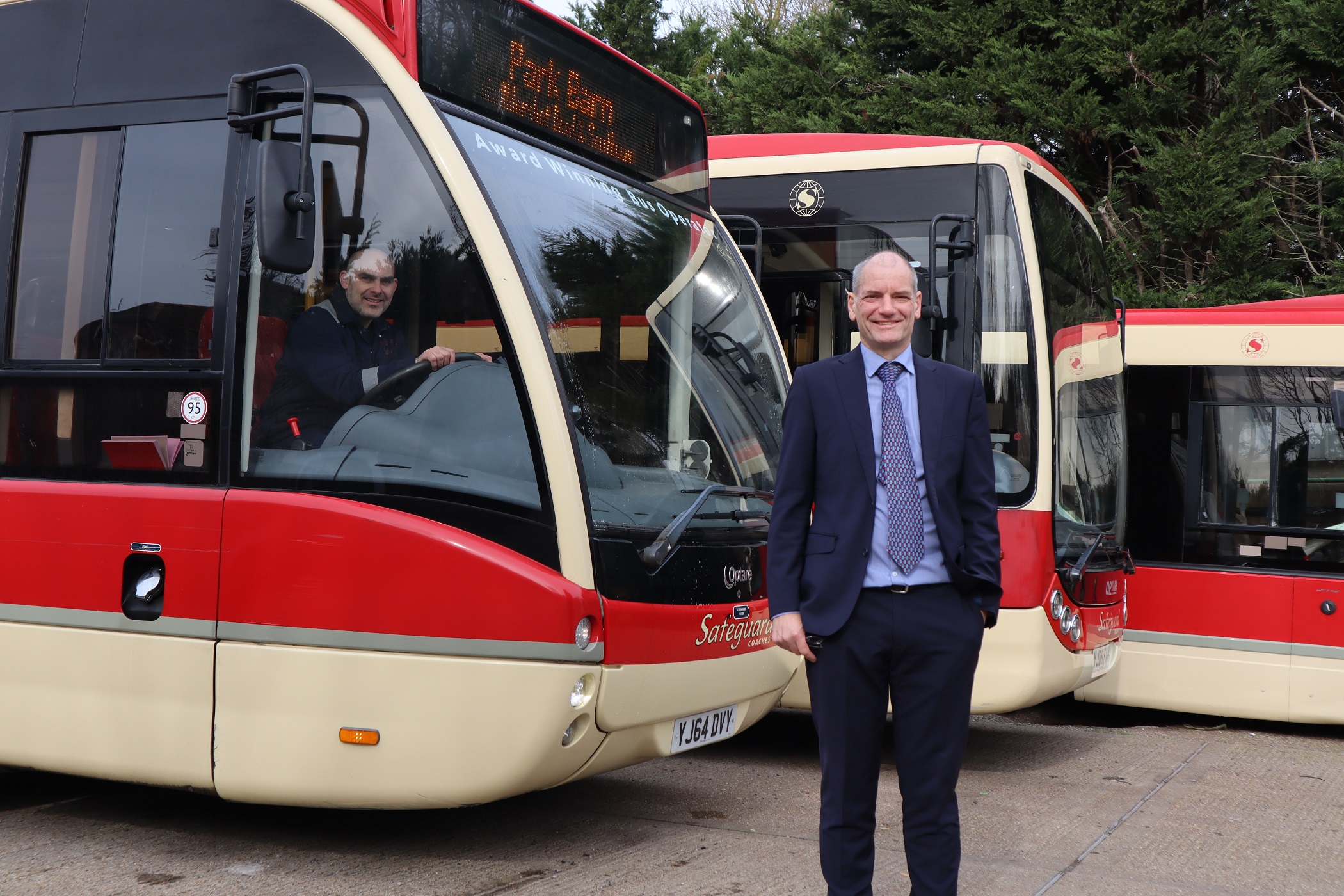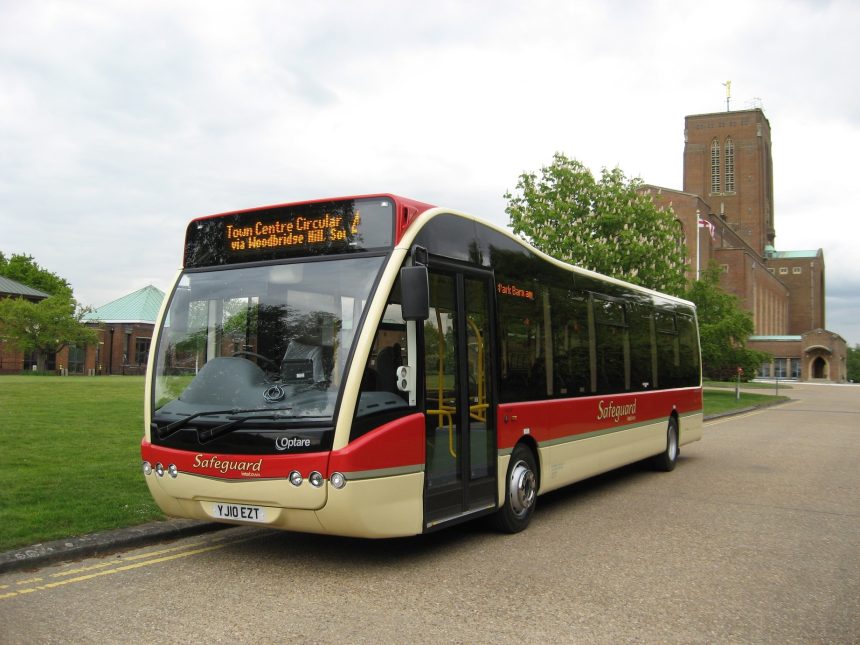It will be “exceptionally difficult” for the bus industry in England to return to fare scales at commercial levels when the government-funded £2 cap comes to an end, an independent operator has warned.
Safeguard Coaches runs 11 buses on services in Guildford and Woking and is not part of the scheme. Its Managing Director Andrew Halliday says that while the level of reimbursement was one reason why it chose not to participate, lack of an exit strategy was Safeguard’s primary concern.
Mr Halliday adds that the longer the £2 cap is in play, the more challenging it will be for participating bus operators to return to non-subsidised fare scales should it end. He points to a previous bus war in Guildford where fares were reduced as an indicator of the difficulty in regaining commercially sustainable levels.
“Politically, no party is going to remove the cap scheme in 2024. By the time we are into 2025, how many customers would remember what the fares were before it was introduced?
“An operator cannot say to them ‘but it used to be this much’, particularly where a transient passenger base is considered. Posting notices on buses to tell customers that we are returning to how fares were two or three years ago will not cut it.”
During heavy competition with Arriva in Guildford during 2019, Safeguard’s fares were as low as £1. Since the end of that clash, the independent has gradually raised its maximum single to £2.50, but Mr Halliday points out that doing so was highly challenging.
He adds: “In light of that, we decided that we were not going to do it again at the end of the £2 cap. We spent a long time getting fares back to where they needed to be, and we were not willing to see them reduced and then have the same problem in a future year, where we may have to repeat the exercise.”

A further factor in Safeguard’s decision not to participate in the cap relates to dwell times at busy stops and the impact on those that could come via any switch from period tickets to paying for journeys individually.
Loss of passenger data is another risk in a move from period passes, although he notes that the publicity around, and simplicity of, the £2 scheme has been beneficial to the wider industry.
“Regardless of participation, this should be a wakeup call to operators – how are new users to be attracted if they do not know the price?”, he continues. All of Safeguard’s fares are published on its website.
Mr Halliday also believes that money put towards the cap would have been better spent on bus priority measures to mitigate congestion and speed services. He says that such a focus would represent “more productive” use of the funding, although the government made clear from the beginning of the cap that it forms part of the wider Help for Households strategy.
The Safeguard MD notes that while it is not part of the fare cap, its bus patronage has returned to as good as pre-pandemic levels when compared like-for-like. Concessionary users are down, but farepayers are up “slightly” despite other operators locally being part of the £2 scheme.



























